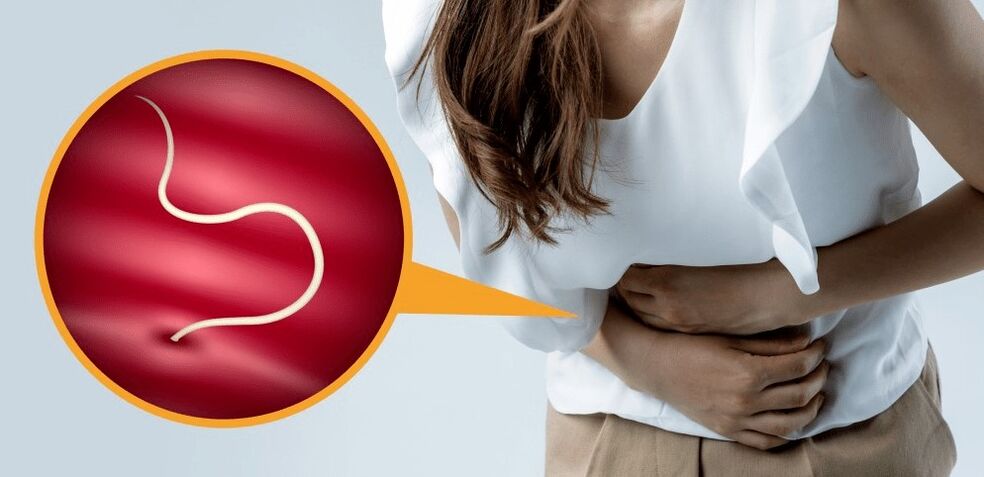
A disease caused by parasites - helminthiasis
Cause of worms
Please note! Pets may be carrying parasite eggs on their paws and fur when they return from a walk on the street. Therefore, you should take good care of your pets, take them to the vet for regular check-ups, and don’t forget to use deworming medication.
Type of worm
- worm– Live in soil; they do not require living organisms to develop.
- biological worm– For their development and reproduction, at least two organisms are required.
- Exposure to parasites.They can be transferred from owners to new objects (from person to person) through contact and daily life.
- nematodes.These include roundworms and pinworms. They occur most often.
- tapeworm.These include the bovine and pork tapeworms, and Echinococcus.
- Flukes (trematodes).This group includes liver flukes and cat flukes. They become the cause of fascioliasis and clonorchiasis.
- Thorn head:Giant acanthus can cause acanthosis.
Symptoms of helminthiasis
- weakness;
- Chills;
- fever;
- Rash, often itchy;
- Cough without phlegm;
- Difficulty breathing;
- stomach ache;
- Bloating.
- lower abdominal pain;
- decreased appetite;
- nausea;
- Frequent hiccups;
- Development of previously unobserved food allergies;
- lose weight;
- Erratic stools - Constipation alternating with diarrhea.
Complications of helminthiasis
important! Helminth infection can negatively affect the effectiveness of vaccine protection.
Diagnosis of worms
- Scrape from the anus to check for pinworm eggs;
- Stool analysis to determine the presence of worm eggs;
- coprogram (detailed stool analysis to assess the quality of gastrointestinal function).
- Lung X-ray;
- liver ultrasound;
- CT scan of internal organs;
- Colonoscopy (exploration of the intestines using a camera);
- Gastroscopy and esophagoscopy (use of an endoscope to examine the gastrointestinal tract).
Treatments for helminthiasis
refer to When an illness is detected in one or more family members, each person showing indirect symptoms needs to receive treatment.
Worm prevention measures
- Always wash your hands after eating, using the bathroom, going outside, or playing with pets.
- Follow healthy lifestyle rules and have a strong immune system.
- Forced heat treatment of meat and fish, cleaning of vegetables and fruits.
- Avoid drinking raw water – prefer boiled water, bottled water or water purified through a filter.
- Wet clean the house at least once every two weeks.






































